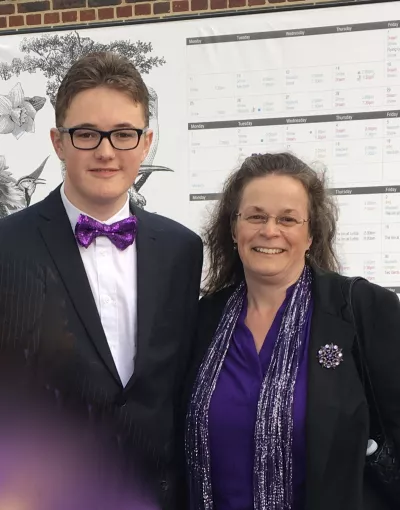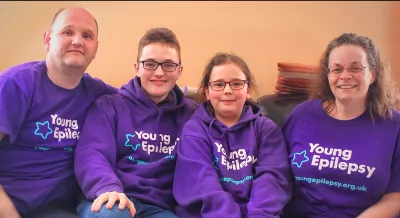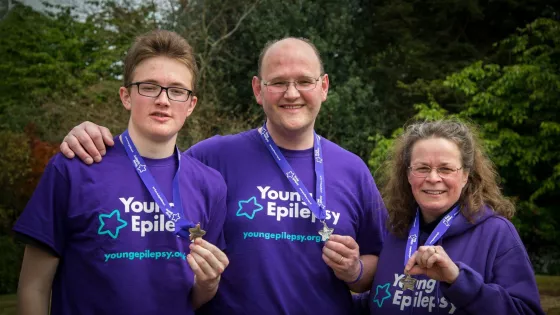How did you feel about the diagnosis?
Lisa: Surprised, confused and frightened. The first seizures did not present as convulsions so I was surprised to hear the words seizure and epilepsy. Epilepsy was something I had heard of but I had no knowledge or experience of.
John: I didn’t know anything about Epilepsy, but as soon as I knew it was going to be part of our lives I researched as much as I could as quickly as possible. It made scary reading; the many types of Epilepsy, the numerous possible signs of seizures and the damage each episode could do. Once we as a family accepted the fact we were in this together, I would say it brought us closer together – we all watch out for each other more than ever before and have an unspoken understanding that everything could change at any time.
Has it changed your relationship in any way?
Lisa: Yes. Living with epilepsy is exhausting and tiredness, anxiety and frustration impact on any relationship. It is really difficult to get the balance between being a responsible and caring parent and an overbearing one. I am still trying to get this right after sixteen years!
What is one of the most challenging things you have found since the diagnosis? The lack of awareness of the condition. Other people’s ignorance and misunderstanding of the fact that epilepsy is “more than seizures”. In the few days following a seizure, lots of people ask how you all are, but epilepsy is there 24-7 and it is the non-seizure days, the “everyday” days, when you could really do with some support and understanding.
John: I believe the hardest thing I’ve had to accept as a parent is that I have to let my 21-year-old son live his own life. I want to shield him, protect him and make sure he is safe at all times – but if he is to survive and thrive, I have to ‘let go’, to let him shoulder some of the worry himself and to assess his own risks in everyday life. I try not to nag about sleep, stress, alcohol, eating well etc. but it is sometimes very difficult. Of course, this will never change, I will never stop worrying.

What did you learn about epilepsy that surprised you?
Lisa: That there are so many different types of epilepsy, seizures and possible treatments. That epilepsy (and the medication) can have such an impact on memory, processing speed and mental health. That seizures can be fatal.
John: The thing that most surprised me when we started the epilepsy journey and had received the diagnosis, was just how many of my friends either admitted to having epilepsy themselves or that they could name people who we knew, who suffered with it too. It gave me reassurance that this invisible condition could be controlled with medication and people very close to me were able to carry on regardless with no apparent symptoms or side effects to the drugs.
What advice would you give to other parents with children with epilepsy?
Lisa: Learn as much as you can about your child’s condition. Don’t be afraid to talk about the condition to family and friends. Establish and maintain good lines of communication with your child’s school. Recognise when life is becoming overwhelming and seek help; you need to be strong for yourself and your child. Join support groups and online forums to be able to meet others who ‘get it’ - you are part of a worldwide Purple Family! Share your story and experiences to raise awareness of the condition.
John: There are so many experts who will have seen the condition your child has been diagnosed with before - listen to them, learn from them and be reassured by them. Sure, your child is unique and will have symptoms you may think are different – make sure you document everything (in word as well as photo and video) and then listen to the experts and speak to as many others as you can about how they live with the condition. Oh, and if there is any way you can get access to an Epilepsy Specialist Nurse, grab it with both hands – not all health trusts / hospitals have them, but the work they do is invaluable.
What would you say to inspire other parents of children with epilepsy?
Lisa: Epilepsy is like a rollercoaster - you will never forget the lows, but you should also remember and celebrate the highs!
John: Epilepsy really is more than just the seizures. It’s the moments together, the smiles, the laughter, the closeness, the love, the pride and the future. Don’t let the condition determine how you live out your lives.



